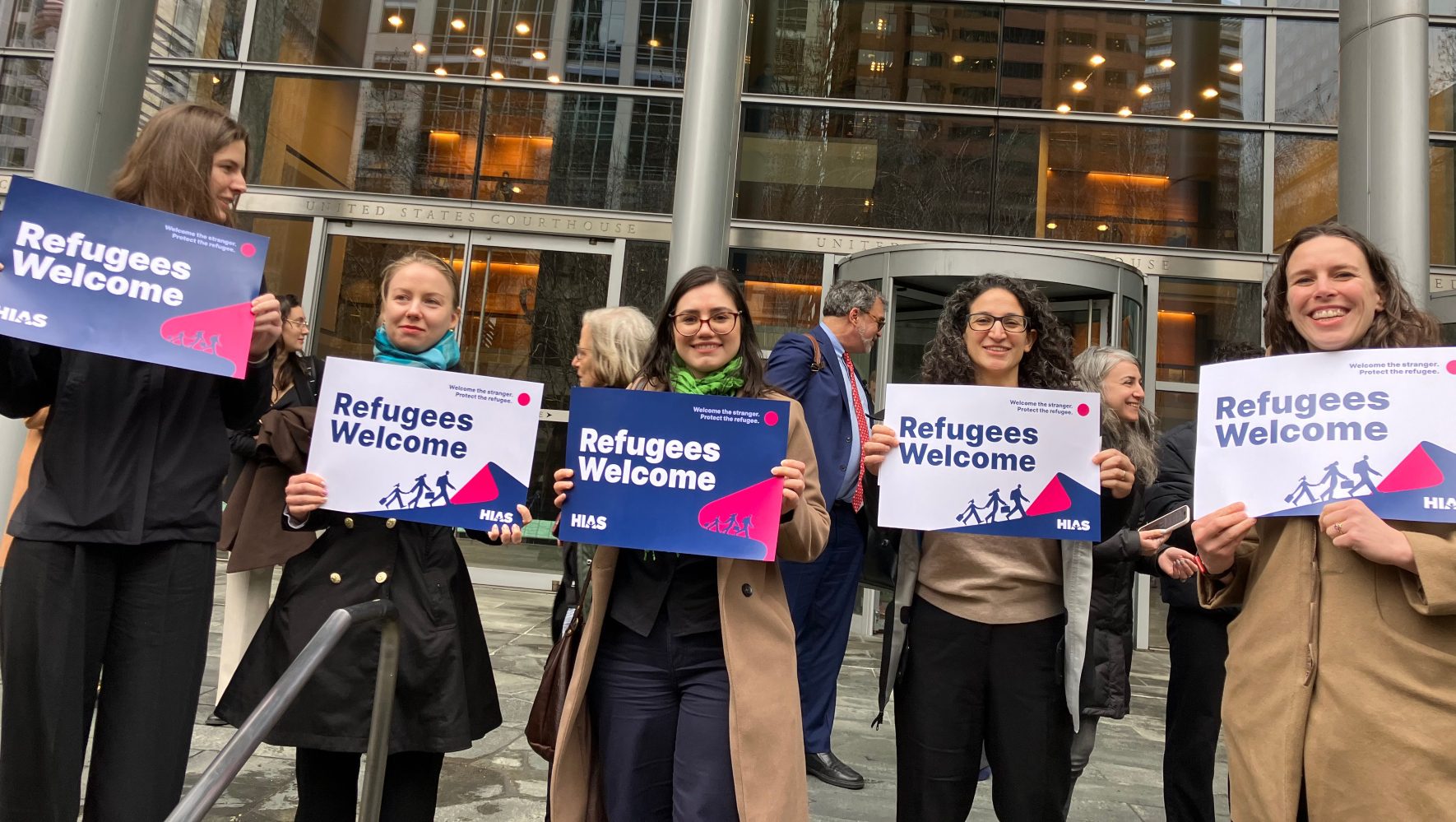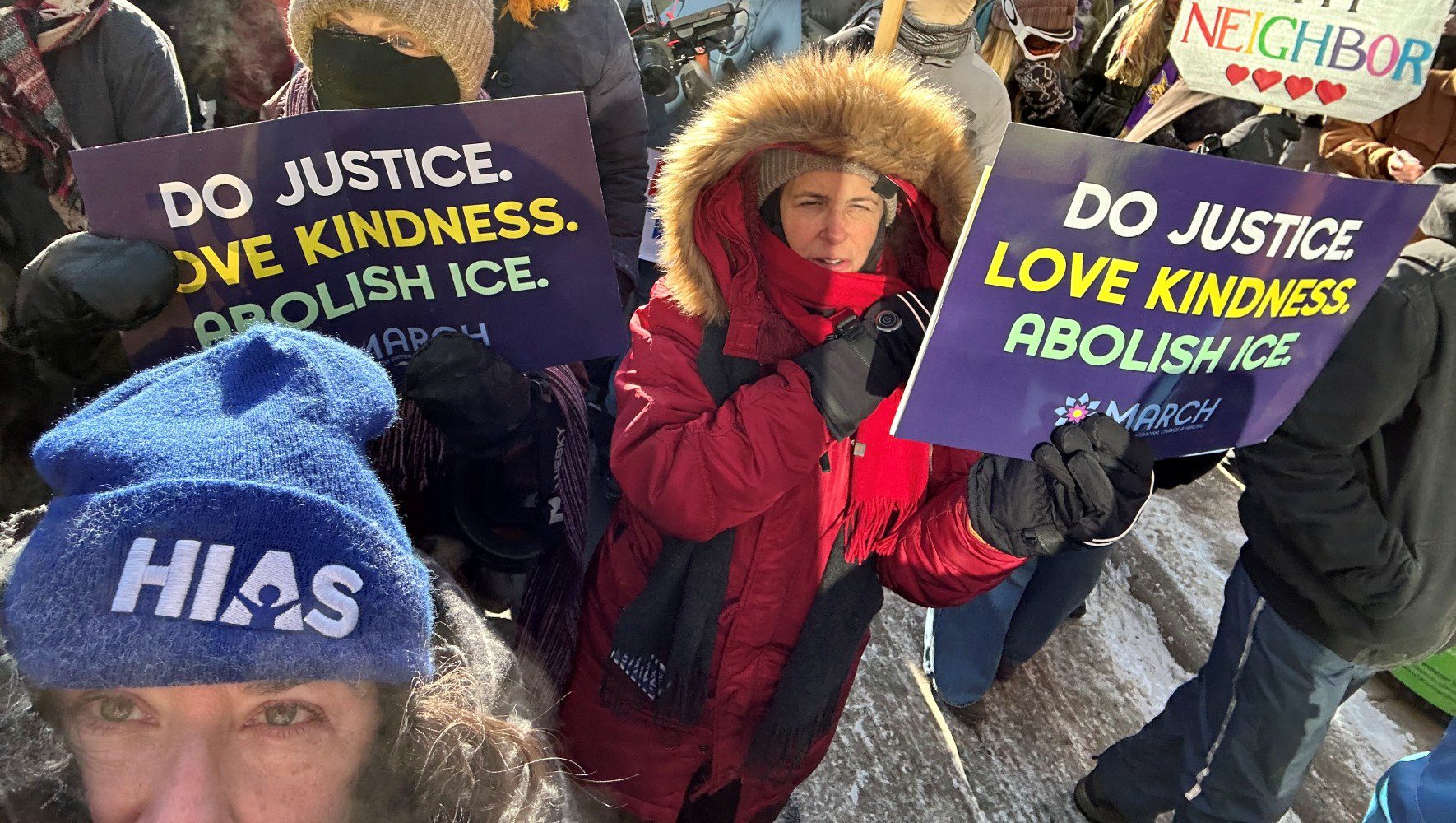Lawsuit Settlement Will Help Reunite Refugee Families
By Sharon Samber, HIAS.org
Feb 11, 2020

Afkab Mohamed Hussein, a resettled refugee from Somalia, hopes to be reunited with his wife and son, following a settlement in a lawsuit filed by HIAS affiliates in 2017 which challenged the third version of a ban on certain refugees entering the U.S.
(Church World Service)
This week the U.S. government entered into a major settlement with plaintiffs in Jewish Family Service v. Trump, a lawsuit filed in 2017 which challenged the third version of a ban on certain refugees entering the United States. The ban set back scores of refugees who were on the brink of resettlement to the United States, miring their cases in delays for more than two years.
This settlement requires the government to expedite the refugee resettlement applications of over 300 refugees who were affected by the ban.
“We appreciate the hope and real results that this settlement brings to our refugee clients who have lived with unimaginable worry about their relatives who haven’t been able to join them,” said Mindy Berkowitz, Executive Director of Jewish Family Services of Silicon Valley, a HIAS affiliate and plaintiff in this case. “Reuniting these families is a beautiful way to bring joy to these families.”
Jewish Family Service v. Trump was brought on behalf of two HIAS affiliates, Jewish Family Service of Seattle and Jewish Family Services of Silicon Valley, along with nine individual plaintiffs. HIAS and the International Refugee Assistance Project, with legal representation from the ACLU and the National Immigration Law Center, filed the lawsuit challenging the constitutionality of President Trump’s executive order of October 24, 2017. The order blocked for at least 90 days refugee resettlement from 11 countries and indefinitely paused the follow-to-join program, which reunites spouses and children with refugees already in the United States.
“We are pleased to have reached a settlement that will reunite some of the refugee families who were kept apart by the refugee ban,” said HIAS CEO and President Mark Hetfield. “At the same time, we are deeply saddened to have had to sue the United States government, which was once a leader in refugee resettlement, just to get it to live up to basic legal commitments to those refugees who have played by the rules to come here legally."
Afkab Mohamed Hussein, a resettled refugee from Somalia awaiting the arrival of his wife and son, said: “I believe this settlement is a great success for all refugees around the world, especially families who are separated. I am feeling very happy and hope to welcome my family in the best country in the world. I would like to ask the government to bring more people and reunite separated families and give a second chance to those in need, so they can find a better life.”
Importantly, any refugee benefitting from the settlement who will travel to the United States will be included in the total count of refugees admitted in fiscal year 2018, when the order was first issued and when the refugee should have arrived if processing had not been suspended. This ensures that slots will not be taken away from the 18,000 refugees that the Administration plans to resettle for fiscal year 2020, which is the lowest admissions goal that any president has ever set since the establishment of the U.S. Refugee Admissions Program in 1980.



